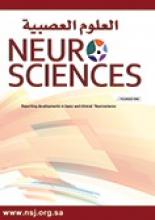The novel coronavirus disease (COVID-19) was first identified in Wuhan province of China in late December 2019.1⇓–3 COVID-19 is characterized by a rapid spread through respiratory droplets with human-to-human contact.1⇓–3 The virus has spread rapidly to more than 200 countries, which has led the World Health Organization (WHO) to declare a COVID-19 global pandemic on March 11, 2020.
The COVID-19 pandemic presents a challenge to health care systems. At the time of writing the current paper, nearly a million individuals were affected worldwide, with more than 50 thousand deaths and hundreds of thousands of hospitalizations.4 The rapid spread of the virus continued to cause a ripple effect on healthcare systems and economies around the globe.4 Governments have continued to take drastic measures to halt the spread of the virus through social distancing protocols. Furthermore, healthcare systems have had to develop strict protocols for resource management and allocation.
Multiple official Saudi bodies, including the Ministry of Health (MOH), the Saudi Patient Safety Center (SPSC), and other organizations continued to collaborate, to achieve the highest efficiency and monitored the response within the country as the pandemic was unfolding.5,6 The Saudi government started its first precautionary measures on 21 January 2020, more than a month before the WHO declared COVID-19 to be a pandemic. Caring for patients with neurosurgical conditions is certainly a challenge to healthcare providers at the time of the pandemic. Therefore, the Saudi Association of Neurological Surgery (SANS) has commissioned a taskforce to provide a consensus statement to serve as a guide for health care providers and hospitals. The SANS statement aims to provide essential neurosurgical care while taking into consideration all the precautions set in place by the government and hospitals to limit the spread of COVID-19 infection and avoid overloading the healthcare system. However, the guide does not aim to replace the (involved) healthcare providers’ judgment for each individual patient.
The SANS task force included 16 board-certified neurosurgeons. These neurosurgeons hailed from the major geographical areas within the country and represented all the subspecialties of neurosurgery, in addition to all health sectors within the country. Meetings were conducted electronically via teleconferencing platforms.
The SANS taskforce utilized the priority list provided by the SPSC for triage in order to unify the efforts.6 Priorities of neurosurgical care were classified into color-coded domains based on the timing of the required surgical intervention. Three color-coded domains were provided (Table 1), red (priority 1: within 24 h), orange (priority 2: from 24 h to 1 week and priority 3: from 1 to 4 weeks), and yellow (priority 4: for more than 4 weeks). The SANS task force allocated neurosurgical cases to their respective domains.
Prioritization of neurosurgical cases based on color domains and priority categories
Recommendations
Neurosurgical management during the COVID-19 pandemic
Triage
Given the challenges faced, it is recommended to prioritize patient management according to the urgency of the surgical intervention (Table 1). This will make treatment more efficient and allow for optimal delivery of healthcare.
Outpatient and office visits
We recommend continuing to follow the SPSC’s recommendations and local institutional policies for outpatient and office visits during the COVID-19 pandemic.
Transferring patients between facilities for treatment
The patient should be transferred to another institution if required, as soon as he/she is stable to receive the required intervention. This should follow the timeline proposed in Table 1. The brain trauma foundation guidelines should be followed for trauma cases.9
2. Teamwork during the pandemic. Neurosurgical services are advised to reduce the number of healthcare staff on clinical duty during the pandemic. We reiterate that all healthcare workers should continue following universal precautions and personal protection equipment (PPE) guidelines as posted and updated by the Ministry of Health and/or local institutional infection control protocols.
3. Neurosurgery cases through the endonasal approach. It is important to note that endonasal surgery poses a higher risk of COVID-19 infection compared to regular craniotomy, probably due to the airborne particles generated, which may transmit the disease to the healthcare team.
The COVID-19 precautions should be practiced: all patient should be treated as suspected of having COVID-19 if endonasal surgery is indicated.10,11
4. Cross privileging of neurosurgeons during the pandemic. If the need arises, SANS recommends cross-privileging of consultants between hospitals within the same city. This will allow for the continuation of care of patients needing neurosurgery.
5. Precautions during surgical procedures. Minimizing the number of surgical teams to the essential members is highly advised. All protective precautions during intubation, positioning, and patient handling should be practiced strictly.
Neurosurgery case management after the pandemic
A backlog of patients requiring management is to be expected following the pandemic. Cases have to be rescheduled according to their priority. Moreover, transferring patients to other institutions may facilitate timely care.
In conclusions, the SANS statement provides guidance to surgeons and hospitals for prioritizing medical care for neurosurgical patients. While it takes patient safety and infection protective protocols into consideration, it does not replace sound clinical judgment, patient-specific factors, situational adjudication, and institutional policies and procedures
- Copyright: © Neurosciences
Neurosciences is an Open Access journal and articles published are distributed under the terms of the Creative Commons Attribution-NonCommercial License (CC BY-NC). Readers may copy, distribute, and display the work for non-commercial purposes with the proper citation of the original work.






